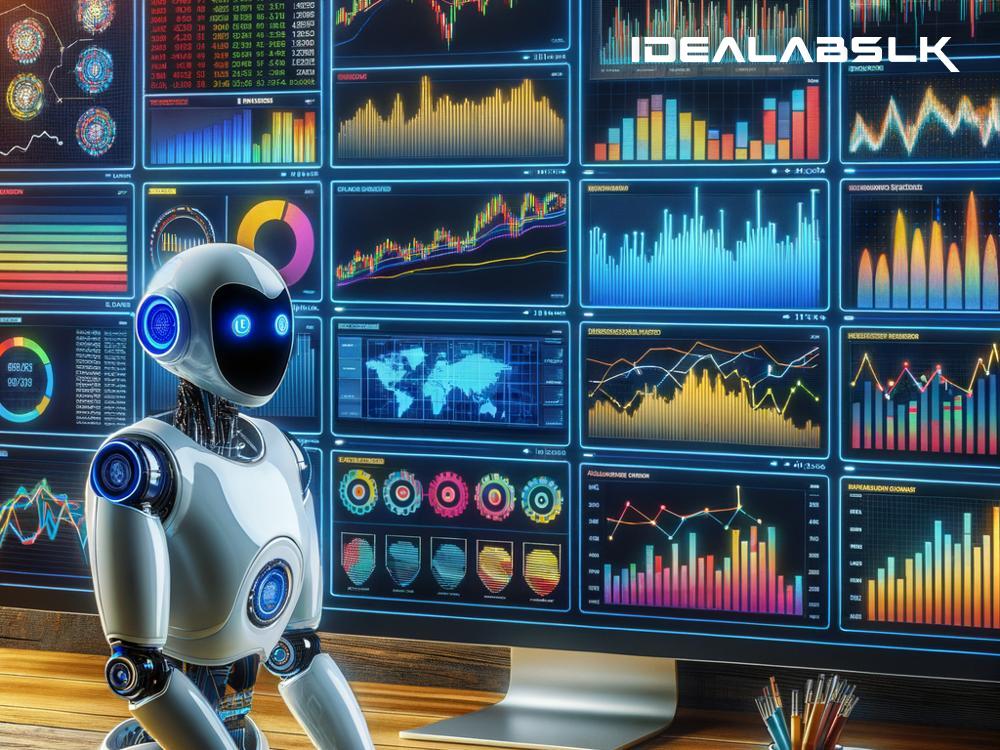AI for Trading: Simplifying Stock Market Predictions Through Data Power
Imagine you have a crystal ball that could help you peek into the future of stock markets. Sounds like a dream, right? That’s almost what it feels like when traders use artificial intelligence (AI) to forecast stock market trends. The world of trading is fast-paced, and the ability to predict what comes next, even if just slightly ahead, can mean the difference between making a profit and facing a loss. This is where AI comes into play, acting as our modern-day crystal ball powered by data.
Understanding AI in Trading
AI in trading is like having a super-intelligent assistant who never sleeps. It's a combination of machine learning, algorithms, and tons of data analysis to help predict stock prices and market trends. The AI systems learn from historical data, identify patterns, and make educated guesses on where the stock market might head next.
The Power of Data
The heart of AI's predictive power in trading lies in its ability to process vast amounts of data. We're talking about millions of pieces of information from stock prices, financial news, company earnings reports, social media, and even weather reports—basically, anything that might influence stock market movements. Human traders can only process so much information at a time, but AI can handle it in milliseconds, continually learning and improving its predictions.
How AI Forecasts Market Trends
So, how does AI turn all this data into a forecast for stock market trends? It uses a few methods:
-
Machine Learning Models: These are like the brain of AI where it learns from past data to predict future outcomes. For example, an AI system might notice that every time a specific tech company launches a new product, its stock price goes up. The AI uses this pattern to predict future stock price increases when similar conditions are met.
-
Sentiment Analysis: This is where AI analyzes the mood or sentiment from news articles, social media posts, or financial reports. If there's a lot of positive buzz around a company, the AI might predict its stock price will rise.
-
Technical Analysis: This involves looking at historical price and volume data to predict future market movements. AI can quickly analyze charts and patterns to spot potential buying or selling signals.
The Benefits of Using AI in Trading
-
Speed: AI can analyze data and make predictions much faster than any human.
-
Accuracy: While not perfect, AI models can often provide more accurate predictions than traditional methods, thanks to their ability to process vast amounts of data and learn from it.
-
Emotion-Free Trading: AI doesn't let emotions get in the way of making decisions, eliminating human biases that often lead to poor trading choices.
-
Round-the-Clock Monitoring: The stock market may close, but AI doesn't need to sleep, continuously monitoring and analyzing data 24/7.
The Challenges and Considerations
While AI in trading sounds promising, it's not without its challenges. For one, AI models are only as good as the data they're trained on. Poor quality or biased data can lead to inaccurate predictions. There's also the risk of over-reliance on AI, where traders might trust the AI's predictions too much without using their judgment. Moreover, as AI trading becomes more common, there's the potential for the market to become more volatile with AI systems making rapid trades based on similar data and predictions.
AI for the Everyday Trader
You might be thinking, “This is great, but isn’t AI trading just for big financial institutions with deep pockets?” Not anymore. With the rise of trading platforms that offer AI tools and services, even individual traders can now leverage AI to help make better trading decisions. These platforms can offer trend predictions, risk analysis, and even suggest trading strategies, making AI an accessible ally for traders at all levels.
In Conclusion
AI for trading is transforming how we approach stock market predictions, leveraging vast amounts of data to forecast trends with impressive speed and accuracy. While it's not a magic solution and comes with its own set of challenges, it provides a fascinating glimpse into the future of trading. Whether you're a seasoned trader or a curious newcomer, understanding and utilizing AI can potentially elevate your trading strategy to new heights. Just remember, as powerful as AI is, successful trading still requires a mix of technology, human judgment, and a good understanding of market fundamentals.

